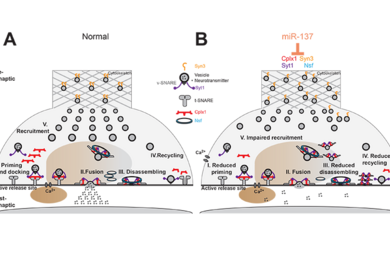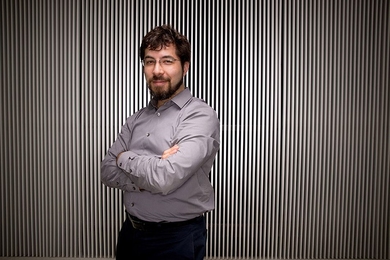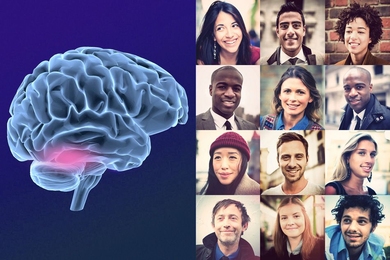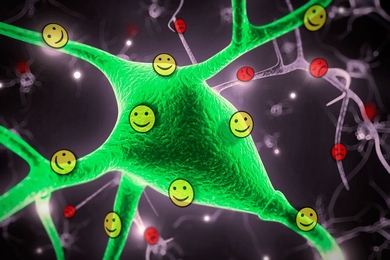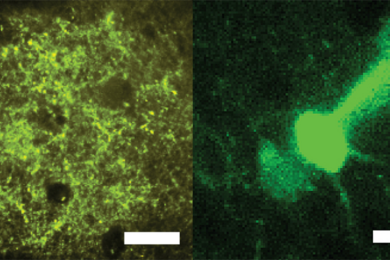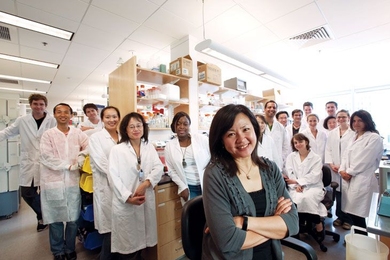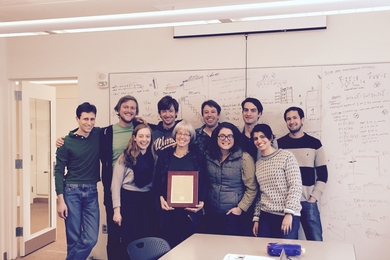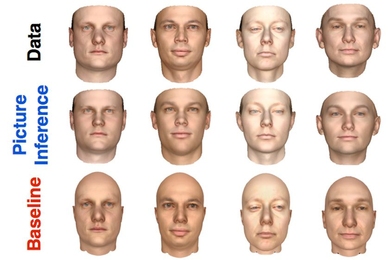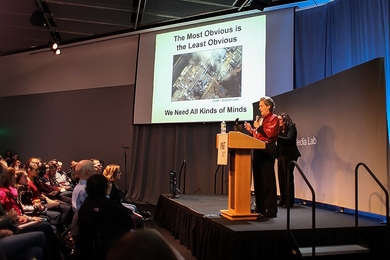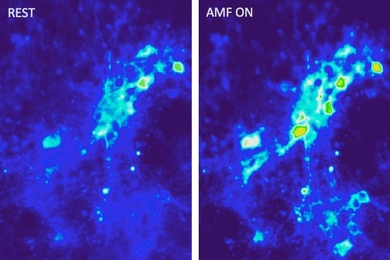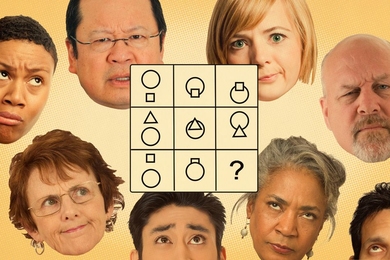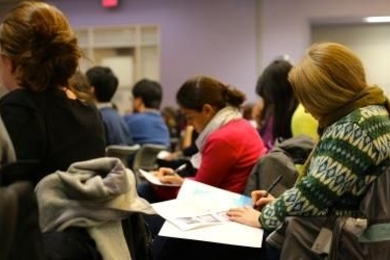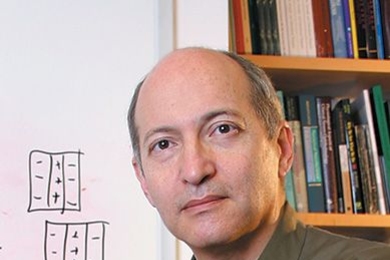Seeking deeper understanding of how the brain works
Edward Boyden develops techniques to study the brain, and how it operates, in finer detail.
How the brain tells good from bad
Neuroscientists identify neurons in the amygdala that assign emotions to experience.
Picower researchers ID brain mechanisms underlying alertness and attentiveness
First demonstration that a common neurotransmitter acts via a single neuron type to enable effective information-processing.
Alana Foundation gift to support study of Down syndrome
MIT’s Picower Institute to partner on four projects with Case Western Reserve University.
Study links brain anatomy, academic achievement, and family income
In middle-schoolers, neuroscientists find differences in brain structures where knowledge is stored.
Crowdsourced tool for depression
Peer-to-peer application outperforms conventional self-help technique for easing depression, anxiety.
Temple Grandin: Look at what people can do, not what they can’t
In talks at MIT, noted behavioral expert suggests encouraging skills of people with autism.
Magnetic brain stimulation
New technique could lead to long-lasting localized stimulation of brain tissue without external connections.
The rise and fall of cognitive skills
Neuroscientists find that different parts of the brain work best at different ages.
